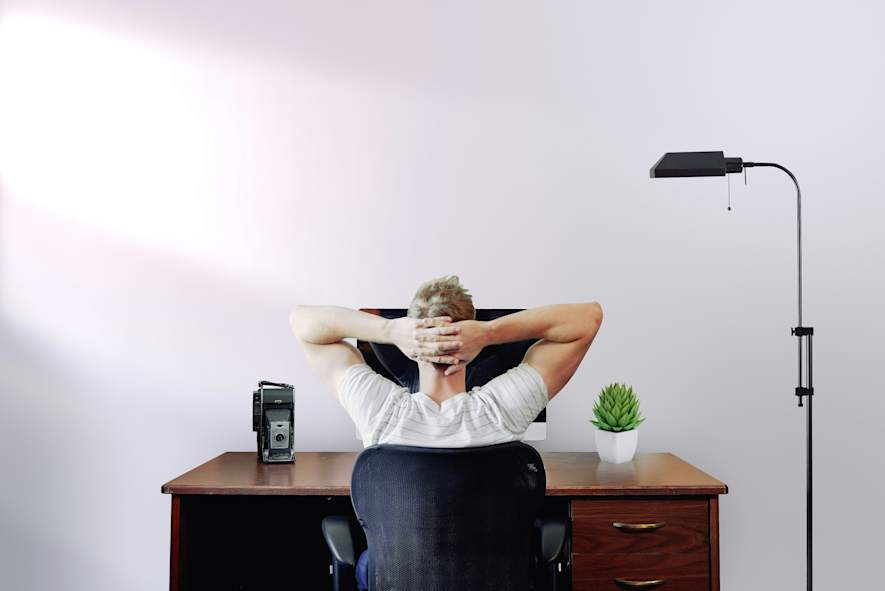
Cloud accounting
Mastering practice-wide control with Intuit Accountant Suite
Simple, smart accounting software - no commitment, cancel anytime

Note that this piece is out of date and currently refers to previous financial years and will be updated for the 2025/26 tax year shortly.
If you’re doing your Self Assessment and work from home, you may wonder if you can claim tax relief. For example, can you claim back the electricity used in your home office?
The good news is, yes, you may be able to claim back some tax from HMRC!
However, only certain circumstances are eligible – for example, if you have to work from home. In this guide, we’ll explain whether and what you can claim in 2023/24.
Please note, the below rules are for people working as a sole trader, not employees.
If you work from home some or all of the week, you may be eligible to claim tax relief on your Self Assessment. If you’re self-employed as a sole trader, you may be able to claim on:
Phone bills (for work use)
Internet bills (for work use)
A proportion of mortgage or rent
A proportion of council tax
Heating (for your workspace)
Electricity (for your workspace)
However, you’ll need to find a way of dividing these costs so they’re only relevant to your work. For example, by working out a percentage and dividing the cost by the size of the rooms you use for business, and the amount of time you spend working at home.
Splitting work and personal bills can be complicated and involves various calculations.
If you’re working at home as a sole trader as well as being self-employed, you can avoid working out your exact business costs by using simplified expenses instead.
It allows you to use a flat rate, instead of working out proportions for everything.
The flat rate includes your heating, electricity, council tax and your mortgage or rent. However, you’ll have to work out phone and internet bills the long-winded way.
You can use this tool on GOV.UK to check if simplified expenses are right for you.
Your tax relief for working from home will be based on various factors, including:
Whether you’re working out exact costs or using a simplified flat rate
The size of your home office or workspace and how often you use it
How much electricity and electricity you use while working from home
Other factors like your council tax band, rent, and work phone usage
Tax relief allows you to not pay tax on allowable expenses, in your Self Assessment. It’s important to record all costs related to your business, even if you’re working from home.
Example 1: A house with four rooms and a yearly gas bill of £1000. If you use one of your rooms for working from home, you can claim back £250 as allowable expenses. If you work there only half the week, this would reduce to £125.
Example 2: An internet bill for the year is £500. If you use a separate work laptop and can work out that around half of your internet is used for business, you can claim back £250 back as allowable business expenses in Self Assessment.
You will be able to add allowable expenses to your Self Assessment – it’s a good idea to leave plenty of time to work out calculations so you can submit them before the deadline.
Using software like QuickBooks can help you track and work out your expenses.
If you’re a sole trader and have chosen to use simplified expenses, you can use an easier flat rate to work out expenses for your heating, electricity, council tax, and mortgage or rent.
You need to work 25+ hours a month from home, and it can’t include phone/internet.
Hours working each month | Flat rate per month |
25 - 50 | £10 |
51 - 100 | £18 |
101+ | £26 |
Example: During the last year, you had 3 months when you worked from home over 25 hours each month. You spent another 9 months WFH, but less than 25 hours per month.
On your Self Assessment, you could claim £30 for the 3 months doing over 25 hours.
Is it classed as working from home if you live at your business premises? If you live in and run somewhere like a bed and breakfast, simplified expenses offer a flat rate for this.
Number of people living there | Flat rate per month |
1 | £350 |
2 | £500 |
3 | £650 |
Instead of working out the exact costs for business and personal use of the building, you can use a flat rate to estimate the amount you can take off expenses, per person.
Example: You run a bed and breakfast and live there all year round. Halfway through the year, your partner moves into the bed and breakfast and lives with you there too.
So for 6 months living alone, you would have to deduct £350 per month from your total business expenses, and for the 6 months living as a couple, you would deduct £500. You would be able to claim the remaining business expenses, after these deductions.
In both simplified and actual costs, it’s important to keep records for Self Assessment. Again, it’s worth noting that you need to be a sole trader, not an employee, for these rules to apply.
How much you could save with working from home tax relief depends on various factors.
These include how many days and hours you work from home, how much electricity and heating you use, and other factors like your council tax, rent, and phone or internet usage.
It can also vary based on your specific circumstances, what you’re eligible for, and any tax laws that apply to your business. Finally, it’s essential to choose the right method of calculating for your business - recording actual costs, or using simplified expenses.
You could potentially claim back hundreds by calculating exact costs – judging what portion of your house is used for business – or by using a flat rate of £10-26 per month.
If you’re self-employed, you can claim expenses on your Self Assessment tax return.
You can read our full guide to how to do a Self Assessment here. As you file your tax return as a sole trader, there will be sections where you can record your expenses for the year.
It’s worth checking guidelines on what’s taxable and what isn’t. You can save on your tax liability by writing off things like business travel and costs for your premises - including a portion of your home costs (like electricity or heating) if you work from home.
You will need to register and file your tax return before the Self Assessment deadlines.
Here are other expenses you can claim for if you’re self-employed and work from home:
Stationery for your home office
Travel costs e.g. business trips
Staff costs for any subcontractors
Raw materials or stock e.g. wood
Financial costs such as insurance
Adverts or company website costs
Relevant training courses
Capital allowances e.g. equipment, machinery, or business vehicles
Read our full blog post on claiming expenses for the full list of things you can claim in Self Assessment. This is why using software to track your expenses can be so helpful – by tracking all your business expenses, you will have a lower bill from your tax return!
If you’re preparing for Self Assessment, QuickBooks can help make it easier. We can help auto-calculate your figures and sort your business expenses into categories for you.
QuickBooks is designed to make Self Assessment easier. When you do your tax return, you’ll already have an idea of what tax you owe.
QuickBooks helps you see the big picture, using machine learning to compare your finances with similar businesses and users. We spot differences to help you make better business decisions.
Track your business’ financial health in real-time with innovative reporting. Log in anywhere, any time to see how much you’re making and estimated tax for the year.
Capture and track any receipts related to working from home when self-employed. For example, utility bills, internet and phone bills, or your rent and council tax bills.
Being self-employed can feel lonely at times. Not with Quickbooks! Get access to a human team of experts, who can help explain tax relief for working from home.
Ready to try QuickBooks? Buy now and save
The above rules in this guide are for self-employed sole traders, not employees.
You can claim some working from home tax relief if you work for an employer. However, it’s trickier and there are more rules. Your job must require you to live far from your office, or your employer must not have an office you can travel or commute to easily.
There’s also a more limited amount of expenses you can claim for – you can claim work phone calls and utilities for your home office, but not things like rent and broadband.
You can’t claim tax relief if you choose not to go to the office (for example because of coronavirus), or if you have the choice to work in the office all or some of the time.
Did you find this guide useful? The QuickBooks Blog covers a wide range of business-related topics, designed to help you grow and develop your business.
Subscribe to get our latest insights, promotions, and product releases straight to your inbox.
9.00am - 5.30pm Monday - Thursday
9.00am - 4.30pm Friday